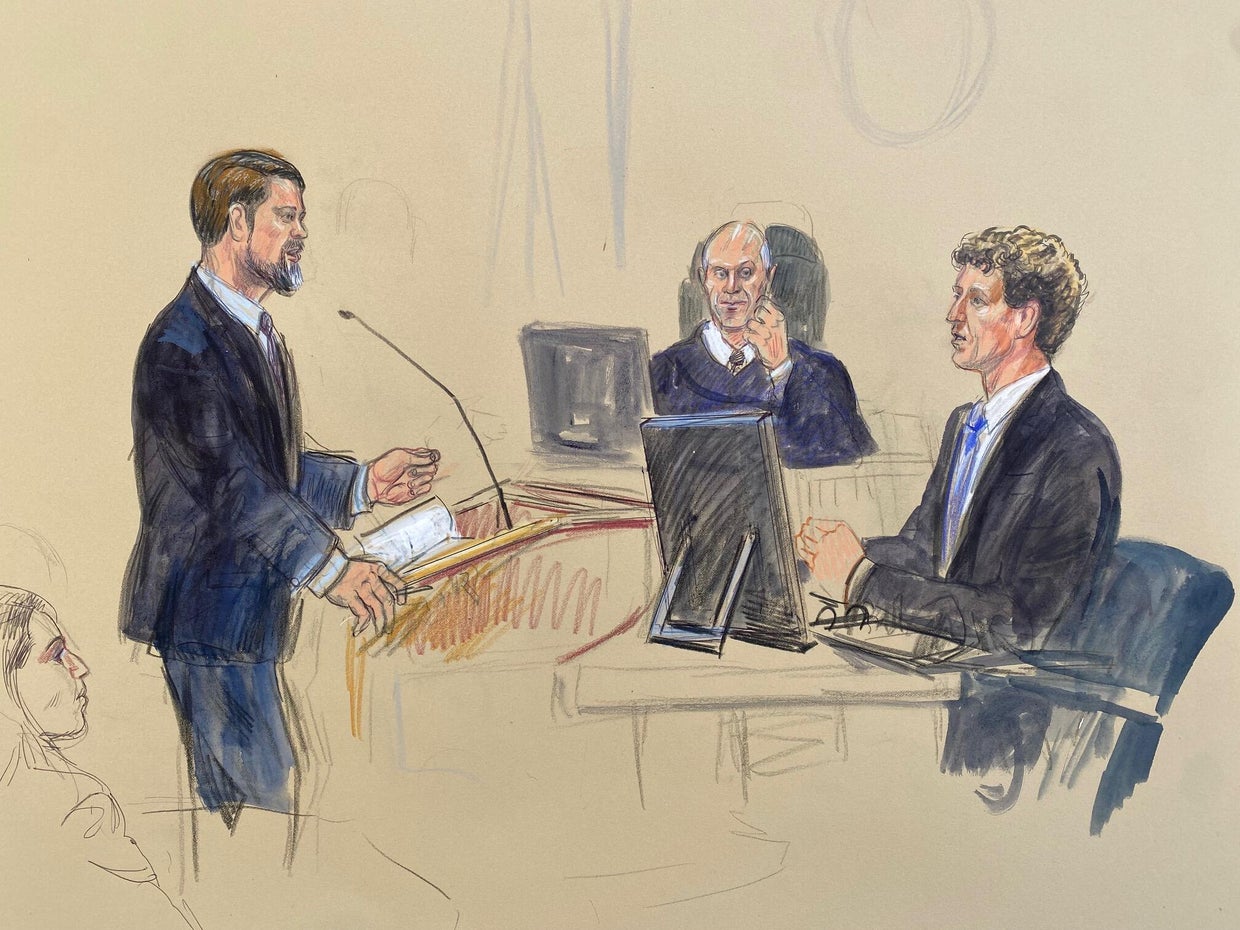
Meta CEO Zuckerberg returns to witness stand, pushes back against FTC antitrust allegations
Meta CEO Mark Zuckerberg sparred Tuesday with a Federal Trade Commission attorney over the meaning of emails the Facebook founder wrote about why he wanted to acquire Instagram, as a historic antitrust trial alleging Meta illegally monopolized the social media market went into its second day.
Zuckerberg returned to the witness stand on Tuesday to defend Meta’s purchase of Instagram and WhatsApp, in a trial that could force Meta to divest the two apps, startups the tech giant bought more than a decade ago which have since grown into social media powerhouses.
Daniel Matheson, who is leading the FTC’s case against Meta, contends that Zuckerberg bought Instagram because he saw it as a threat to his company, not because he thought he could make it thrive.
While questioning Zuckerberg on Tuesday morning, Matheson noted that the CEO had referred to Instagram as being a “rapidly growing, threatening, network.”
But Zuckerberg, who is the first witness called in the trial, said while Matheson was able to show documents in court that indicated his concern about Instagram’s growth, he also had many conversations about how excited his company was to acquire Instagram to make a better product.
Zuckerberg pushed back against Matheson’s contention that the reason for buying the company was to neutralize a threat.
“I think that that mischaracterizes what the email was,” Zuckerberg said.
In his questioning of Zuckerberg, Matheson repeatedly brought up emails — many of them more than a decade old — written by Zuckerberg and his associates before the acquisition of Instagram.
Dana Verkouteren
While acknowledging the documents, Zuckerberg has often sought to downplay the contents, saying he wrote them in the early stages of considering the acquisition and that what he wrote at the time didn’t capture the full scope of his interest in the company.
Matheson also brought up a February 2012 message in which Zuckerberg wrote to the former chief financial officer of Facebook that Instagram and Path, a social networking app, already had created meaningful networks that could be “very disruptive to us.”
Zuckerberg testified that the message was written in the context of a broad discussion about whether they should buy companies to accelerate their own developments.
Zuckerberg also testified that buying the company, taking it off the market and building their own version of it was “a reasonable thing to do.”
The trial is one of the first big tests of President Donald Trump’s FTC’s ability to challenge Big Tech. The lawsuit was filed against Meta — then called Facebook — in 2020, during Trump’s first term. It claims the company bought Instagram and WhatsApp to squash competition and establish an illegal monopoly in the social media market.
Facebook bought Instagram — which was a photo-sharing app with no ads — for $1 billion in 2012.
Instagram was the first company Facebook bought and kept running as a separate app. Until then, Facebook was known for smaller “acqui-hires” — a popular Silicon Valley deal in which a company purchases a startup as a way to hire its talented workers, then shuts the acquired company down. Two years later, it did it again with the messaging app WhatsApp, which it purchased for $22 billion.
WhatsApp and Instagram helped Facebook move its business from desktop computers to mobile devices, and to remain popular with younger generations as rivals like Snapchat (which it also tried, but failed, to buy) and TikTok emerged.
However, the FTC has a narrow definition of Meta’s competitive market, excluding companies like TikTok, YouTube and Apple’s messaging service from being considered rivals to Instagram and WhatsApp.
Meta, meanwhile, says the FTC’s lawsuit “defies reality.”
“The evidence at trial will show what every 17-year-old in the world knows: Instagram, Facebook and WhatsApp compete with Chinese-owned TikTok, YouTube, X, iMessage and many others. More than 10 years after the FTC reviewed and cleared our acquisitions, the Commission’s action in this case sends the message that no deal is ever truly final,” the company said in a statement.
U.S. District Judge James Boasberg is presiding over the case. Late last year, he denied Meta’s request for a summary judgment and ruled that the case must go to trial.
